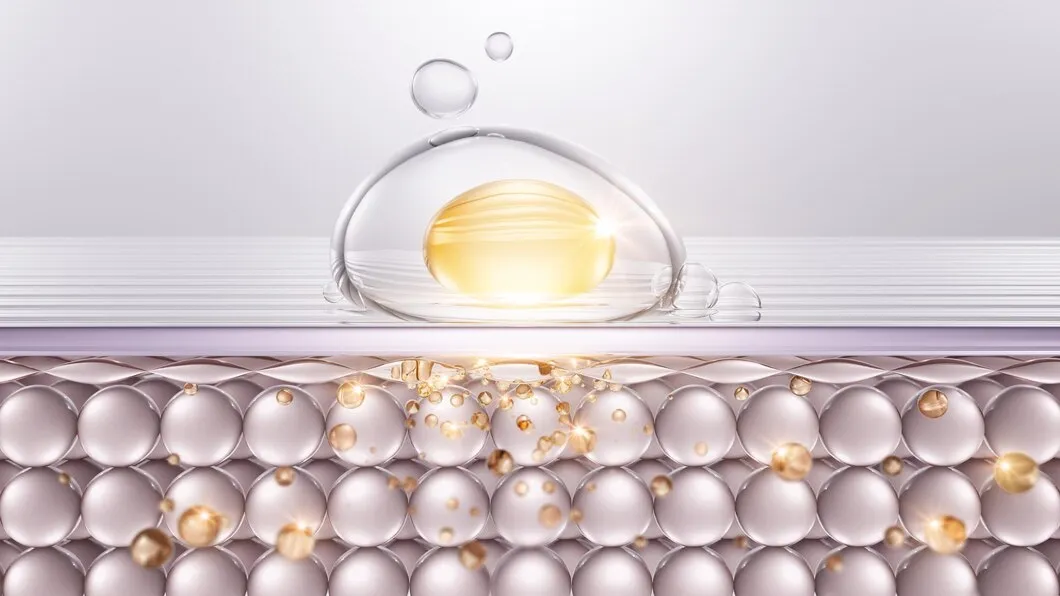The Science of Collagen for Skin Whitening: Advanced Formulas and Real Results

- Understanding Collagen: The Skin's Structural Superhero
- The Link Between Collagen and Skin Whitening
- Advanced Collagen Formulas for Skin Whitening
- The Science Behind Collagen's Skin Whitening Effects
- Real Results: What to Expect from Collagen Skin Whitening Products
- Maximizing the Benefits of Collagen for Skin Whitening
- Potential Side Effects and Considerations
- The Future of Collagen in Skin Whitening
- Conclusion: Is Collagen the Key to Brighter Skin?
- Frequently Asked Questions
Are you on a quest for brighter, more radiant skin? You’re not alone. In the world of skincare, the pursuit of a glowing complexion is a journey many embark on. Enter collagen – a protein that’s been making waves in the beauty industry, not just for its anti-aging properties, but also for its potential in Collagen for Skin Whitening. But here’s the burning question: can collagen really help you achieve that coveted luminous look? Let’s dive into the science, explore the latest advanced formulas, and uncover the truth about Collagen for Skin Whitening.
Understanding Collagen: The Skin’s Structural Superhero
Before we delve into the whitening effects of Collagen for Skin Whitening, let’s get to know collagen a bit better. Think of collagen as the scaffolding that keeps your skin firm and bouncy. It’s the most abundant protein in your body, making up about 75-80% of your skin. Pretty impressive, right?
The Collagen-Skin Connection
Collagen plays a crucial role in maintaining skin health:
- Structure and Support: It provides the framework that gives your skin its shape and firmness.
- Hydration: Collagen helps your skin retain moisture, keeping it plump and supple.
- Elasticity: Working alongside elastin, collagen helps your skin bounce back when stretched.
- Renewal: It supports the constant renewal of skin cells, contributing to a fresher appearance.
As we age, our natural collagen production slows down. This decline starts in our 20s and accelerates in our 30s and 40s. The result? Fine lines, wrinkles, and yes – potentially duller, less radiant skin.
The Link Between Collagen and Skin Whitening
Now, you might be wondering, “That’s all great, but what does collagen have to do with collagen for skin whitening?” It’s a valid question, and the answer lies in the complex relationship between collagen and melanin production.
Collagen’s Role in Melanin Regulation
Melanin is the pigment responsible for skin color. The process of melanin production, called melanogenesis, occurs in specialized cells known as melanocytes. Research suggests that collagen may influence this process in several ways:
- Cellular Communication: Collagen peptides may help regulate the signals between skin cells, potentially influencing melanin production.
- Antioxidant Properties: Some studies indicate that certain collagen peptides have antioxidant effects, which could help protect skin cells from damage that can lead to hyperpigmentation.
- Skin Barrier Function: A strong collagen network supports a healthy skin barrier, which can be more resistant to environmental factors that trigger excess melanin production.
- Cell Turnover: Collagen supports the skin’s natural renewal process, which can help shed pigmented cells more efficiently.
Advanced Collagen Formulas for Skin Whitening
The beauty industry has been quick to capitalize on collagen’s potential for skin whitening. Let’s explore some of the advanced formulas making waves in the market:
1. Hydrolyzed Collagen Peptides
These are small, easily absorbed fragments of collagen that can penetrate deeper into the skin. Many advanced formulas use hydrolyzed collagen peptides specifically chosen for their potential skin-brightening effects.
2. Collagen + Vitamin C Combinations
Vitamin C is a powerhouse when it comes to skin brightening. When combined with collagen, it creates a dynamic duo:
- Vitamin C inhibits tyrosinase, an enzyme crucial for melanin production.
- It also supports collagen synthesis, enhancing the overall skin-renewing effects.
3. Marine Collagen Complexes
Derived from fish scales or skin, marine collagen is gaining popularity in skin whitening formulas due to its:
- High bioavailability (ease of absorption)
- Unique amino acid profile that may offer additional skin benefits
Related Article: Marine Collagen or Bovine Collagen? Pros and Cons Explained
4. Collagen-Boosting Ingredients
Some advanced formulas focus on stimulating your body’s natural collagen production. Key ingredients include:
- Retinoids: Promote collagen synthesis and accelerate skin cell turnover
- Peptides: Signal your skin to produce more collagen
- Antioxidants: Protect existing collagen from damage
5. Nanoencapsulated Collagen
This cutting-edge technology involves encasing collagen molecules in tiny capsules that can penetrate deeper into the skin, potentially enhancing its effects on melanin regulation.
The Science Behind Collagen’s Skin Whitening Effects
While the beauty industry is buzzing about collagen’s skin-whitening potential, it’s crucial to look at what the science says. Let’s break down some key studies and their findings:
Study 1: Collagen Peptides and Melanin Synthesis
A 2019 study published in the Journal of Cosmetic Dermatology examined the effects of specific collagen peptides on melanin synthesis. The researchers found that certain peptides derived from collagen could inhibit tyrosinase activity, potentially leading to reduced melanin production.
Key findings:
- Collagen peptides showed a dose-dependent effect on melanin synthesis inhibition
- The effect was comparable to some commonly used skin-lightening agents
- No cytotoxicity was observed, suggesting safety for skin application
Study 2: Oral Collagen Supplementation and Skin Brightness
A 2020 clinical trial investigated the effects of oral collagen supplementation on various skin parameters, including brightness. The double-blind, placebo-controlled study involved 60 women who took either a collagen supplement or a placebo for 12 weeks.
Results:
- Participants in the collagen group showed a significant improvement in skin brightness compared to the placebo group
- Skin hydration and elasticity also improved
- The effects were more pronounced in participants over 35 years old
Study 3: Collagen Combined with Vitamin C
A 2018 in vitro study explored the combined effects of collagen peptides and vitamin C on melanogenesis. The researchers found that this combination was more effective at inhibiting melanin production than either component alone.
Highlights:
- The collagen-vitamin C combo downregulated key enzymes involved in melanin synthesis
- Antioxidant activity was enhanced, potentially protecting skin from UV-induced pigmentation
- The study suggested potential for developing more effective skin-brightening products
While these studies show promising results, it’s important to note that more research is needed to fully understand collagen’s skin-whitening effects. Many studies are conducted in vitro or on small sample sizes, and results may vary in real-world applications.
Real Results: What to Expect from Collagen Skin Whitening Products
If you’re considering trying a collagen-based skin whitening product, it’s essential to have realistic expectations. Here’s what you might experience:
Short-Term Effects (2-4 weeks)
- Improved skin hydration and plumpness
- A subtle “glow” due to increased moisture retention
- Smoother skin texture
Medium-Term Effects (1-3 months)
- More noticeable improvement in skin brightness
- Reduction in the appearance of dark spots or uneven skin tone
- Enhanced overall skin clarity
Long-Term Effects (3+ months)
- Potentially significant improvement in skin brightness and evenness
- Better resilience against new pigmentation formation
- Improved overall skin health and appearance
Remember, individual results can vary greatly depending on factors like:
- Your skin type and natural melanin levels
- Consistency of product use
- Sun exposure and protection habits
- Diet and lifestyle factors
- The specific formulation of the collagen product used
Maximizing the Benefits of Collagen for Skin Whitening
To get the most out of collagen-based skin whitening products, consider these tips:
- Combine Topical and Oral Approaches: Using both topical collagen products and oral supplements may provide synergistic benefits.
- Stay Sun-Smart: Protect your skin from UV damage with broad-spectrum sunscreen to prevent new pigmentation.
- Maintain a Healthy Diet: Consume foods rich in vitamin C, antioxidants, and amino acids to support collagen production and skin health.
- Stay Hydrated: Proper hydration is crucial for maintaining skin’s plumpness and glow.
- Be Consistent: Stick to your skincare routine for at least 3 months to see significant results.
- Choose Quality Products: Look for formulations backed by clinical studies and containing effective concentrations of active ingredients.
Potential Side Effects and Considerations
While collagen is generally considered safe for most people, it’s important to be aware of potential side effects:
- Allergic Reactions: Some people may be allergic to the source of collagen (e.g., fish or bovine)
- Digestive Issues: Oral supplements can sometimes cause mild gastrointestinal discomfort
- Interactions: Collagen may interact with certain medications, so consult with a healthcare provider if you’re on any prescriptions
For topical products, always perform a patch test before applying to your face to check for any adverse reactions.
The Future of Collagen in Skin Whitening
The field of collagen for skin whitening research is rapidly evolving. Here are some exciting developments on the horizon:
1. Personalized Collagen Formulas
Advances in genetic testing and skin analysis may soon allow for customized collagen products tailored to individual skin needs and whitening goals.
2. Novel Delivery Systems
Researchers are exploring new ways to enhance collagen absorption and efficacy, such as:
- Microneedle patches infused with collagen peptides
- Collagen-based sheet masks with time-release technology
- Ultrasound-assisted delivery of collagen into deeper skin layers
3. Combination Therapies
Future treatments may combine collagen with other cutting-edge skin whitening ingredients for enhanced results:
- Stem cell extracts
- Epigenetic modulators
- Advanced botanical complexes
4. Sustainable and Ethical Sourcing
As consumers become more eco-conscious, expect to see a rise in:
- Plant-based collagen alternatives
- Ethically sourced marine collagen
- Lab-grown human collagen
Conclusion: Is Collagen the Key to Brighter Skin?
Collagen for skin whitening’s role in skin whitening is a fascinating area of skincare science that continues to evolve. While current research shows promise, it’s important to approach collagen-based skin whitening products with informed expectations.
The potential benefits of collagen for skin brightening include:
- Improved skin hydration and texture
- Enhanced skin cell turnover
- Potential regulation of melanin production
- Overall skin health support
However, it’s crucial to remember that collagen is not a magic bullet for skin whitening. It works best as part of a comprehensive skincare routine that includes sun protection, proper hydration, and a healthy lifestyle.
As with any skincare journey, patience and consistency are key. If you’re considering incorporating collagen into your skin whitening regimen, consult with a dermatologist to determine the best approach for your unique skin needs.
The quest for brighter, more radiant skin is ongoing, and collagen is certainly a player worth watching in this exciting field. As research continues to unfold, we may discover even more about how this remarkable protein can help us achieve that coveted glow.

Frequently Asked Questions
- Q: How long does it take to see results from collagen skin whitening products?
A: Results can vary, but most people start noticing improvements in skin texture and hydration within 2-4 weeks. More significant skin brightening effects typically become visible after 1-3 months of consistent use. - Q: Are there any natural ways to boost collagen for skin whitening?
A: Yes, several natural methods can support collagen production and skin brightening:
- Eating foods rich in vitamin C (e.g., citrus fruits, berries)
- Consuming bone broth
- Getting adequate sleep
- Practicing stress-reduction techniques
- Using sunscreen daily to protect existing collagen
- Q: Can men use collagen for skin whitening too?
A: Absolutely! Collagen’s benefits for skin health and potential whitening effects are not gender-specific. Men can benefit from collagen-based skincare products just as much as women. - Q: Is marine collagen more effective for skin whitening than bovine collagen?
A: Some studies suggest that marine collagen may have higher bioavailability, meaning it’s more easily absorbed by the body. However, both types can be effective for skin health. The choice often comes down to personal preference and any dietary restrictions. - Q: Are there any alternatives to collagen for skin whitening?
A: Yes, several other ingredients are known for their skin-brightening properties:
- Vitamin C
- Niacinamide
- Alpha Arbutin
- Kojic Acid
- Licorice Extract
These can be used alongside or as alternatives to collagen-based products, depending on your skin’s needs and sensitivities.



